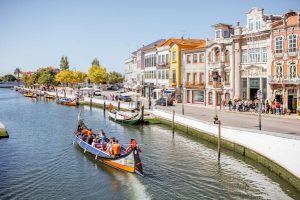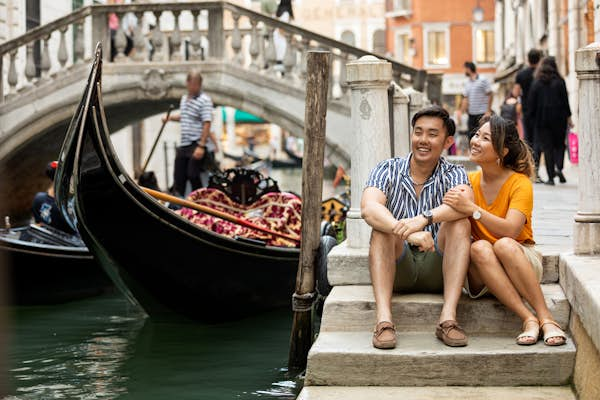
Venice is a unique destination that pops up on an infinite number of travel bucket lists with good reason. Canals and gondolas, churches and palaces, festivals and Biennales – all of them contribute toward keeping Venice on the list of the most-visited cities in the world.
The downside of being one of the most desirable vacation destinations is the price tag that inevitably brings – though we can’t deny that Venice is a pricey city, it doesn’t mean that there aren’t plenty of free (and almost free!) things to do while you’re there. So here’s our guide to the best bargain activities in the floating city.
Get more travel inspiration, tips and exclusive offers sent straight to your inbox with our weekly newsletter. 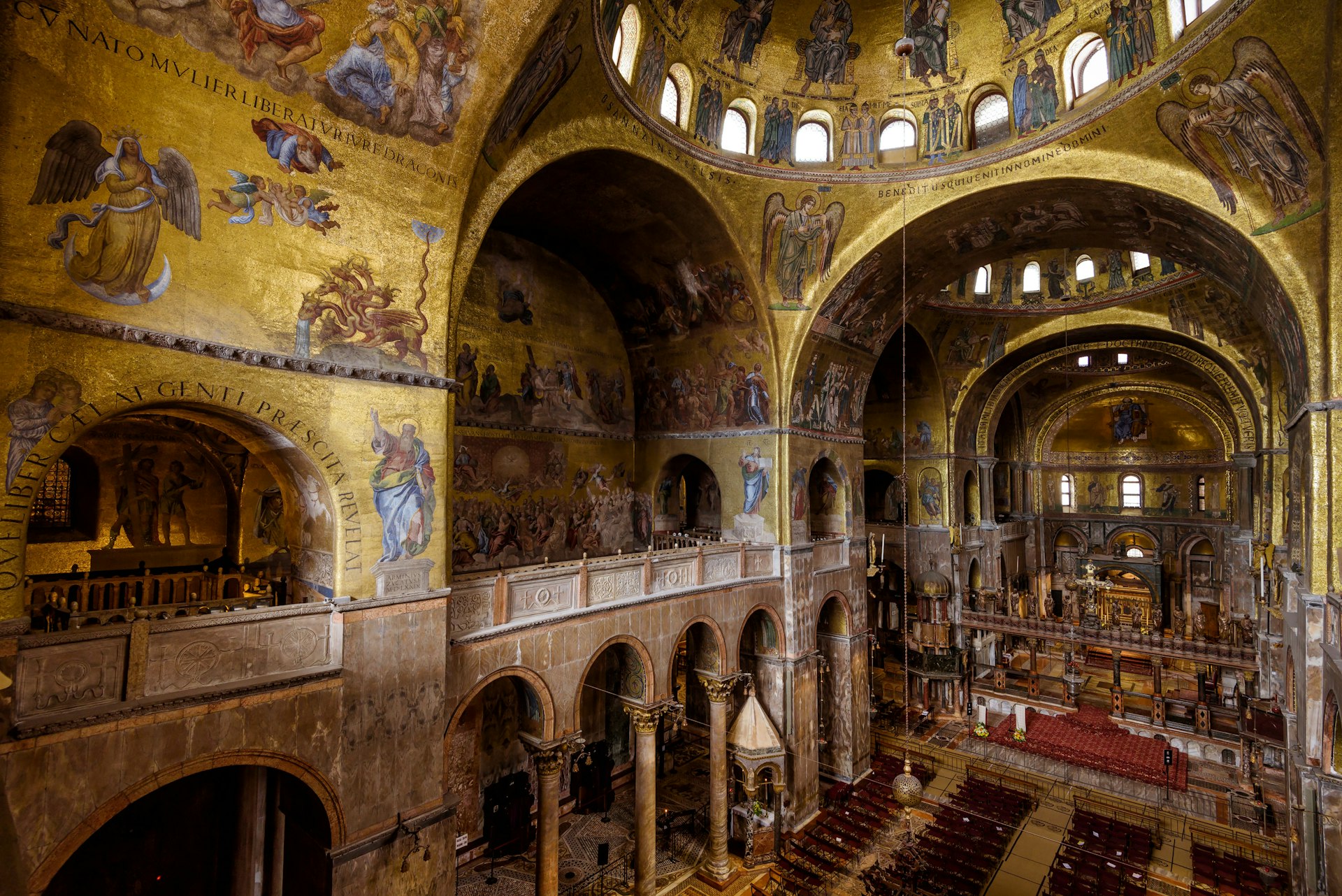 There’s no charge to enter the Basilica San Marco and wander around the central circuit © Viacheslav Lopatin / Shutterstock
There’s no charge to enter the Basilica San Marco and wander around the central circuit © Viacheslav Lopatin / Shutterstock
1. Admire the gilded beauty of historic churches
Of course, a trip to Venice should always begin with a visit to Basilica San Marco and its richly decorated interiors. Entry to the Basilica is free (you have to pay to access its famous treasure), but unless you’re visiting during low season, it’s likely you’ll have to queue up before you can walk in.
And while Saint Mark’s Basilica is undoubtedly the city’s most famous church, don’t let its gold blind you to the other great religious architecture present on the Lagoon. You can visit the Basilica of Santa Maria della Salute, one of the most beloved by Venetians (you only have to pay to visit its internal museum), or the very ancient Chiesa di San Zaccaria (where for €1.50 you can descend into the flooded crypt).
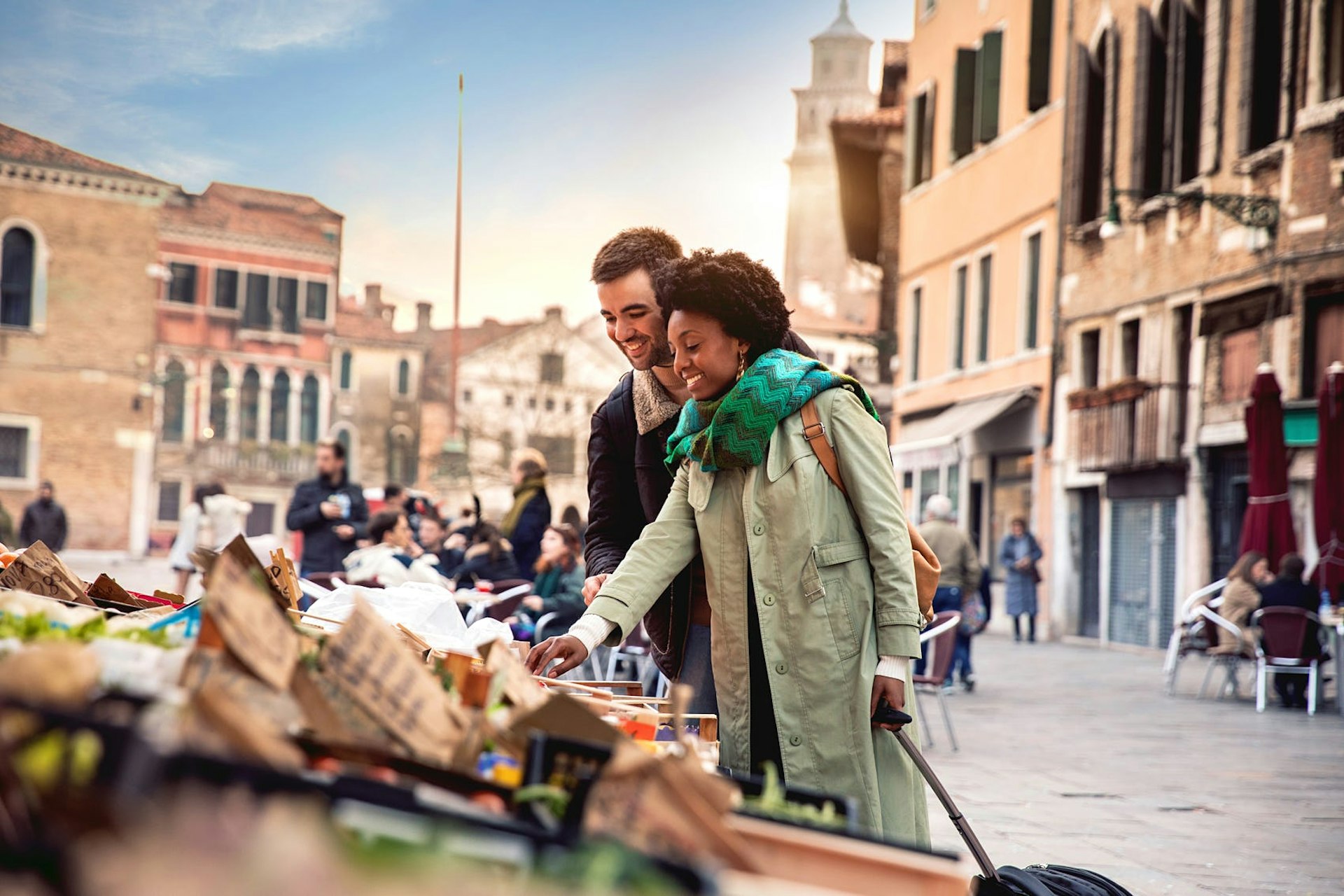 Venice’s beautiful and bustling outdoor markets are a fun freebie activity in the city © LeoPatrizi / Getty Images
Venice’s beautiful and bustling outdoor markets are a fun freebie activity in the city © LeoPatrizi / Getty Images
2. Wander through the abundant markets
Walking among the stalls of the centuries-old Rialto market is definitely a unique and quintessentially Venetian (and Italian) experience. Divided into two sections, one for fruits and vegetables (in Piazza delle Erbe) and the other for fresh seafood (in Loggia della Pescheria), the market is located in the area around the Rialto bridge, in the sestiere San Polo. The same area turns into a wonderland of Christmas stalls and little shops if you happen to visit during the holidays.
And if you want to up your shopping game, you can always head to the Fondaco dei Tedeschi – once a warehouse for German merchants arriving in the Serenissima, it has been converted turned into a modern and sleek mall. You can also head up to the terrace to catch a spectacular view of the city – you have to book your time slot to make sure there’s enough space for everyone, but it’s all free of charge.
Local tip: The fresh food available at the markets is delicious and makes for a perfect picnic. Treat yourself to a low-cost lunch in one of Venice’s beautiful parks or gardens and enjoy an experience that feels anything but budget.
Want some help? Let Elsewhere plan your next trip.
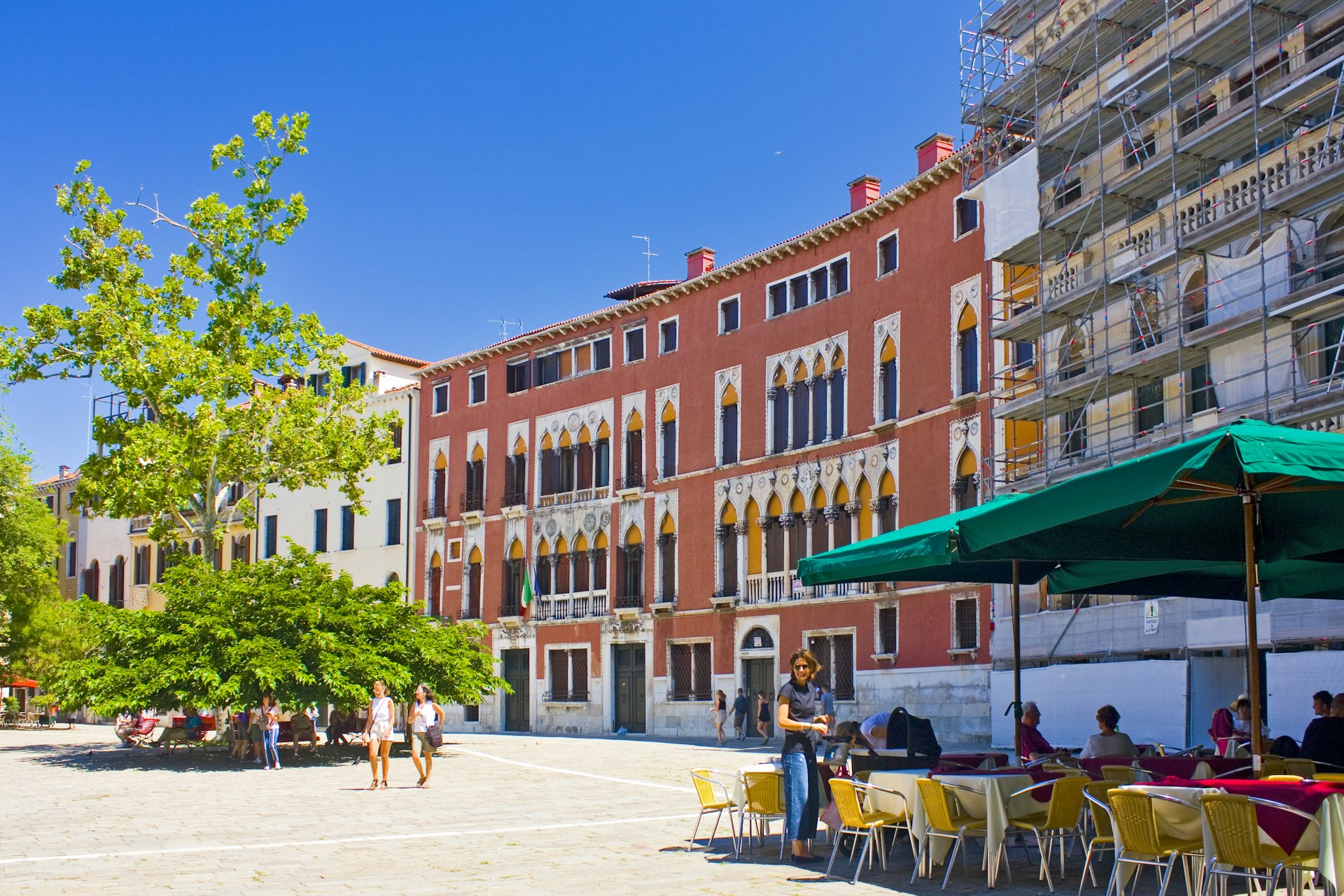 Off the main tourist beat you’ll find green spots to soak up Venice life like this square in San Polo © lindasky76 / Shutterstock
Off the main tourist beat you’ll find green spots to soak up Venice life like this square in San Polo © lindasky76 / Shutterstock
3. Relax in one of Venice’s parks, squares and gardens
Venice might not be the first name that pops into your head when you think of a green city, but even if water is its main feature, the Serenissima has no shortage of parks and gardens to relax and take it slow in. If you want to add some art to your park experience, you can choose the Giardini della Biennale and its thirty pavilions that usually host the Biennale exhibitions.
If you want some truly stunning views then you should head to the Parco della Rimembranza, which looks out onto the Lagoon. For a real history immersion, the best option is the Giardini Reali, planned by Napoleon, while the best option for a full day out is Parco San Giuliano, all the way onto the mainland in Mestre.
4. Enjoy the fanfare of a regatta
What else would you expect from a city whose streets are canals other than regattas everywhere? They make for quite a sight and are an excellent addition to any trip – and all they require is a bit of careful planning.
Probably the most well known of all the regattas is the Regata Storica, which takes place each year on the first Sunday of September. Located on the Grand Canal, it’s divided into two main events – a historical parade, made up of tens of boats and people in period clothing, and the actual race, which is divided into several categories depending on the type of boat.
Every four years Venice hosts the Regata delle Antiche Repubbliche Marinare – the regatta of the ancient maritime republics. The four contestants are Venice, Genoa, Pisa and Amalfi and each city has its turn hosting the event each year.
Then there is the Vogalonga, with its more than a thousand participants every May, and the Regata delle Befane on the day of the Epiphany in January, where rowers dress up as the Befana, a witch-like figure from Italian folklore that brings sweets to kids on the day of the Epiphany.
Planning tip: Each of the four maritime republics has a turn hosting the Regata delle Antiche Repubbliche Marinare – if it’s a major draw for you, check in advance to coordinate your visit with Venice’s turn as a host city.
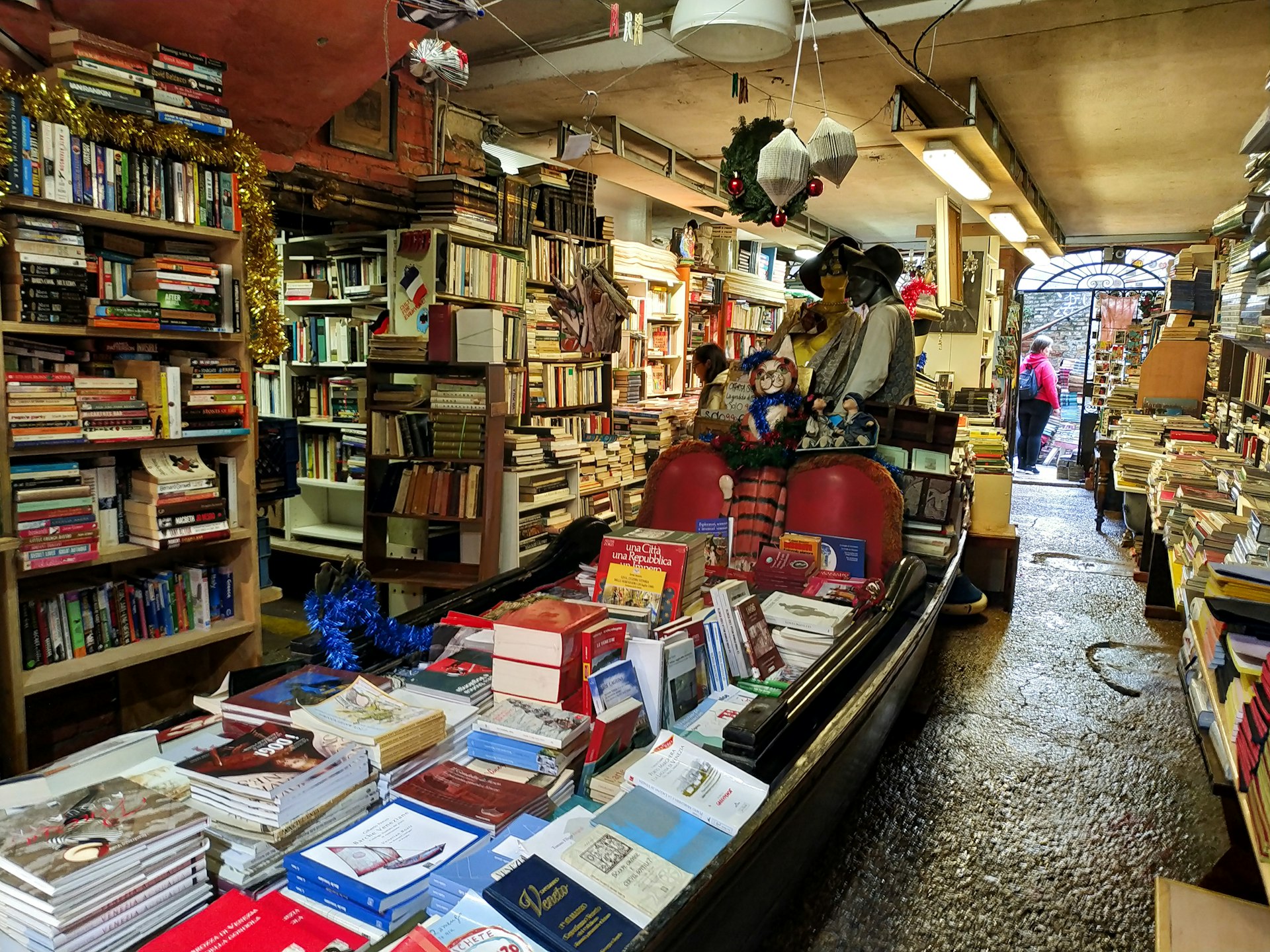 Books stacked in a gondola in the uniquely Venetian bookshop Libreria dell’Acqua Alta © Sun452 / Shutterstock
Books stacked in a gondola in the uniquely Venetian bookshop Libreria dell’Acqua Alta © Sun452 / Shutterstock
5. Seek out Venice’s quirky spots
It goes without saying that a unique city like Venice has some equally unique spots hidden away. The Libreria Acqua Alta, for example, has its stacks of books stashed in bathtubs and gondolas to preserve them in case of acqua alta (literally “high water’ in Italian and the peril of residing in a floating city). It also features a staircase made of books, which allows you to enjoy a beautiful view over the canals from an elevated vantage point.
Then you can head to Calle Varisco, the narrowest street in Venice, barely more than fifty centimeters wide. There’s also the Ponte del Chiodo, the last testament to how bridges used to be in Venice – with larger steps and without a balustrade. The design change came about when too many drunk residents took unscheduled dips in the canals.
And if you’re fascinated by gondolas, you can hunt down one of the very few remaining squeri where they’re repaired, like the Squero di San Trevaso. While technically you can’t visit inside it, you can park yourself on the other side of the canal and observe the artisans hard at work to have the gondolas ready to take to the water again.
 The spectacle of Carnevale can be enjoyed just by wandering the streets © Pecold / Shutterstock
The spectacle of Carnevale can be enjoyed just by wandering the streets © Pecold / Shutterstock
6. Soak up the atmosphere of major festivals and events
Venice is, of course, synonymous with the Carnevale. The exact date depends on when Easter falls that year, which determines Lent and in turn decides the date of the Carnevale. Regardless, it’s a truly breathtaking event when the city fills up with colors, masks and extravagant costumes. One of the main events of the Carnevale is the Volo dell’Angelo – the flight of the angel – when a performer hanging on a zipline descends onto Saint Mark’s Square from the Campanile.
Another great Venetian celebration you can’t miss and is also free to enjoy is the Festa del Redentore. Each third Sunday of July the city gets together to commemorate the end of the terrible 16th-century plague epidemic with spectacular fireworks which light up the canals – especially around the area of the island of Giudecca.
Planning tip: The Biennale is understandably a huge draw for fans of contemporary art but don’t worry if your visit doesn’t coincide with the year it’s happening – you can still visit and enjoy the Giardini and Arsenale.

